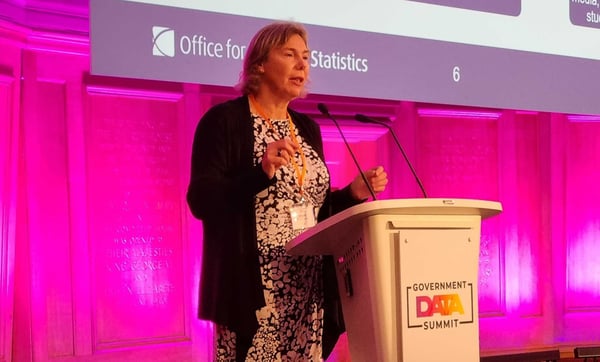NAO publishes data-sharing guide for government leaders
The National Audit Office (NAO) has published a guide to help senior leaders in government make a better use of data and data-sharing across public services.
The 27-page document identifies seven key areas where government decision-makers face data challenges, including data-sharing, quality, standards, resourcing, APIs, analytics and cross-government data sets. It also offers a “way forward” which reviews why initiatives have failed in the past and offers advice on how to tackle those challenges.
By encouraging government executives to examine the issues holding back effective data sharing, the guide aims to help them realise what a good use of data can bring to the operational delivery of public services.
Inadequate use of data is a leading cause of inefficiencies in government and organisations must acknowledge the importance of fixing underlying data issues, such as addressing legacy systems and allowing for better cross-departmental data-sharing, the guide explains.
Government leaders effectively addressing the challenges highlighted in the report, “could bring substantial benefits by enabling reform and transformation”, says the document.
Persisting challenges of data-sharing in government
The report identifies three “substantive issues” preventing government executives from making a better use of data.
Despite continuous talk about the importance of data, there is still a lack of understanding of what quality data is, as new initiatives lacking a structured approach and poor data quality evidence.
Not seeing data as a priority is also a challenge preventing the case for long-term investments to improve data quality and sharing.
The guide also identifies a data culture “not fit-for-purpose” as a barrier standing in the way of making a better use of data, with government lacking “the necessary capability, leadership and culture to introduce and support sustained improvements.”
Departments must share data for the benefit of citizens
Although the 2017 Digital Economy Act enabled public authorities to share personal data among public bodies to improve service delivery, a 2019 Office for National Statistics (ONS) report found that the legislation did not offer departments the reassurance they need to be confident about sharing data legally.
The ONS report concluded that “despite years of effort and many well-documented failures, government has lacked clear and sustained strategic leadership on data,” which in turn led to departments to under-prioritise their data management and improvement efforts.
A risk aversion culture among public authorities, who are often reluctant to data share fearing the potential consequences of doing it incorrectly, has for a long time been an important obstacle among departments in government to collaborate with data. This, however, improved substantially during the pandemic, when the urgency of the situation pushed departments to work together with data to manage the national emergency.
The pandemic showed that government can do much more with data for the benefit of citizens’ if it works more closely, however, there is still a risk of slipping into the old ways of working.
Alison Pritchard, Deputy National Statistician and Director General for Data Capability at the ONS, said that although she has seen progress in data-sharing across government, friction remains and there is a need to continue creating use cases as seen during the Covid-19 outbreak, when government departments made leaps and bounds with data sharing.
“The pandemic really generated that moment where the management of risk was clearly overtaken by the benefits in sharing that data,” Pritchard said at the Government Data Show. “So the moment you have a really clear purpose, you're able to generate progress around data sharing”.





